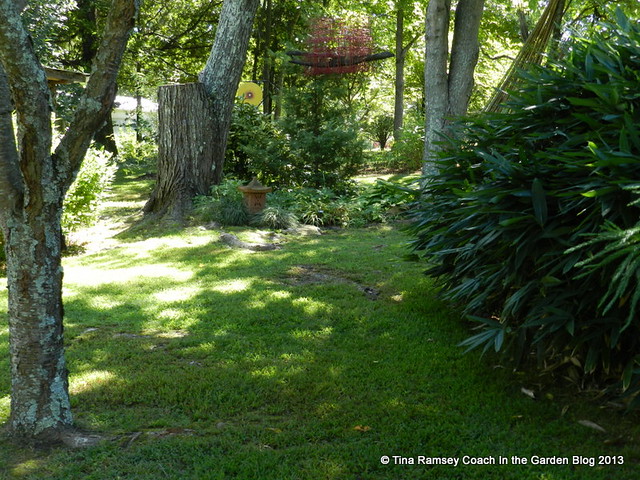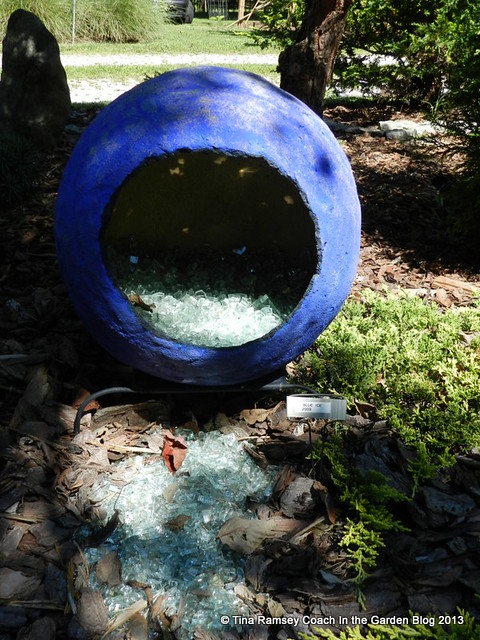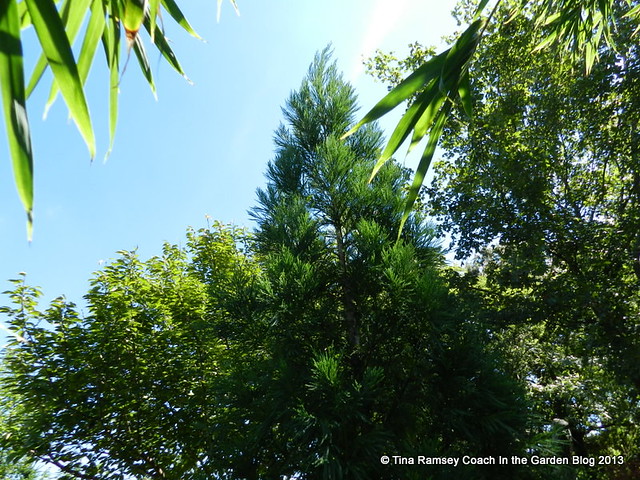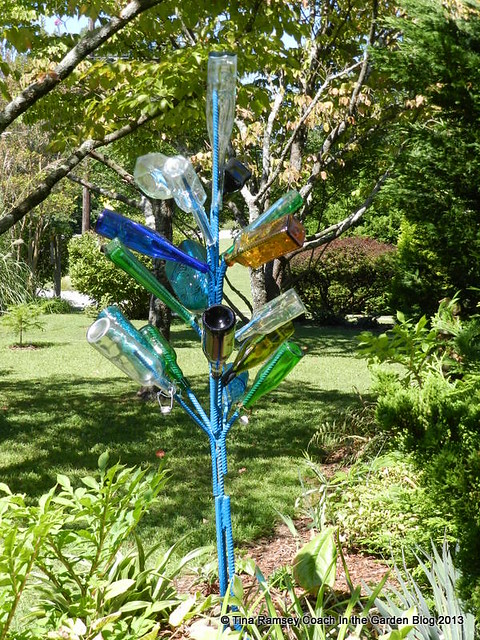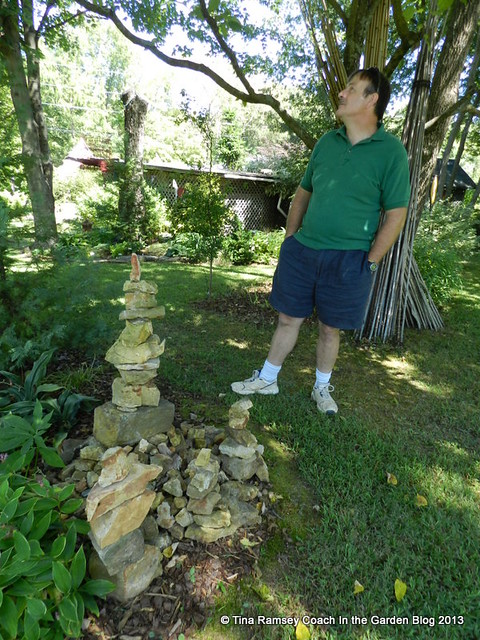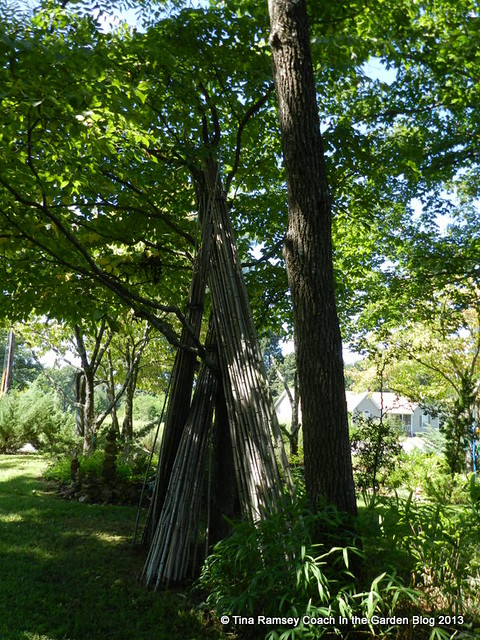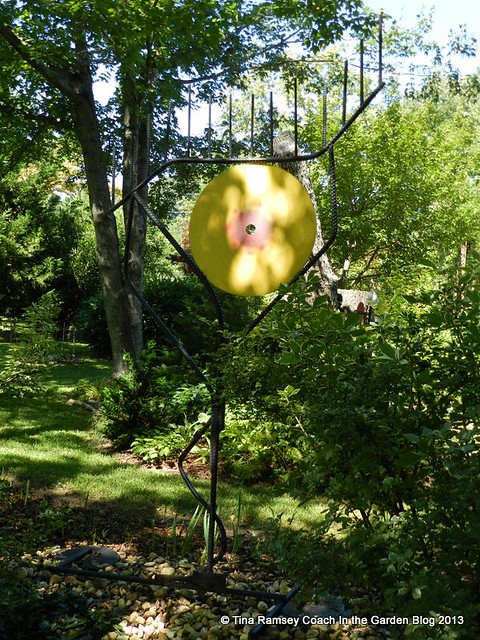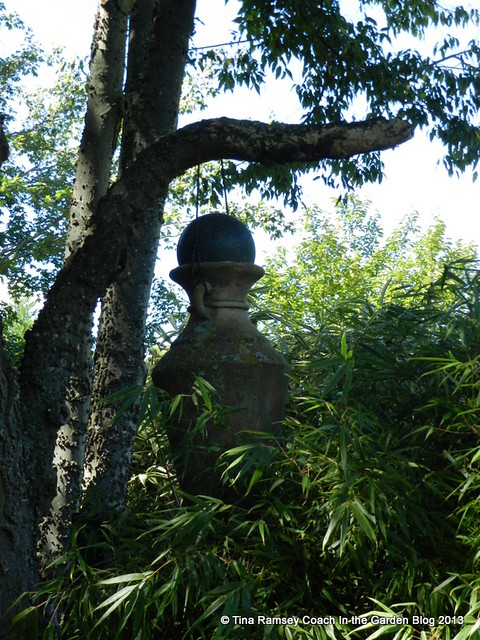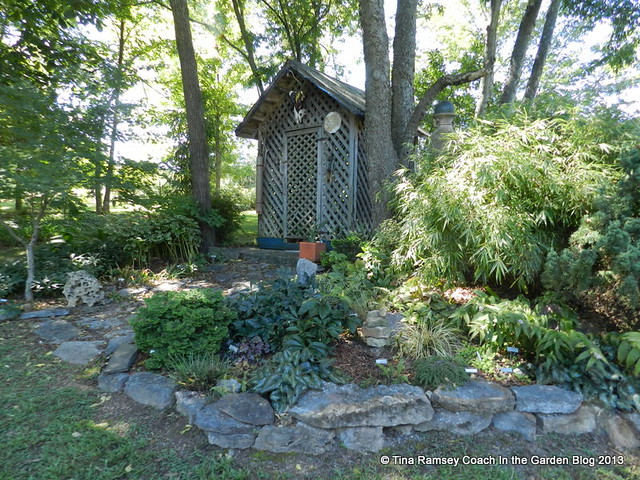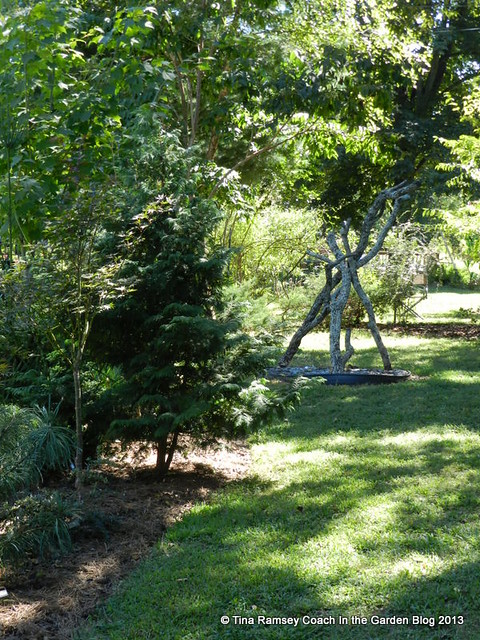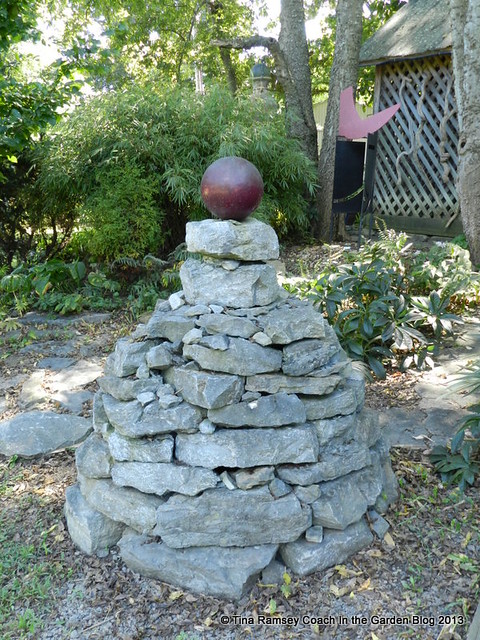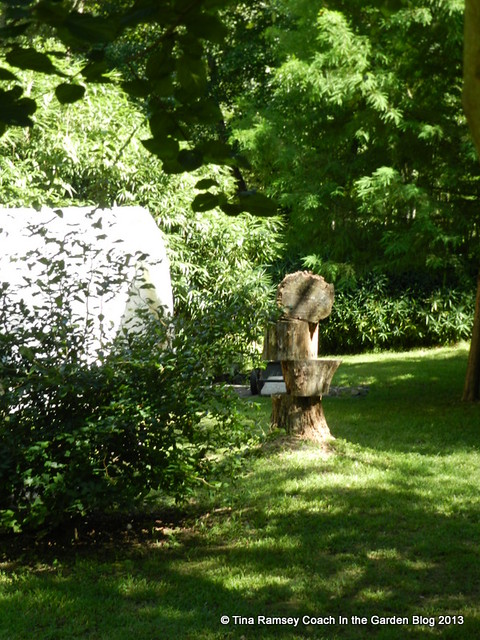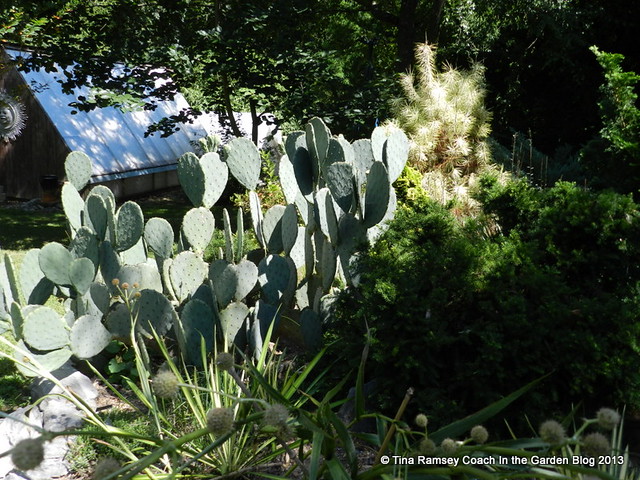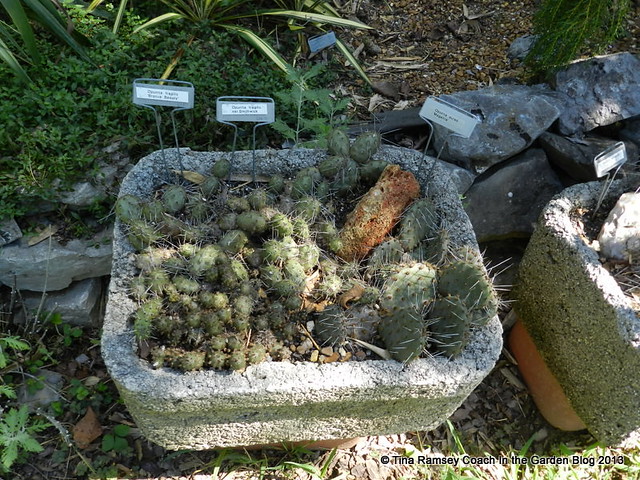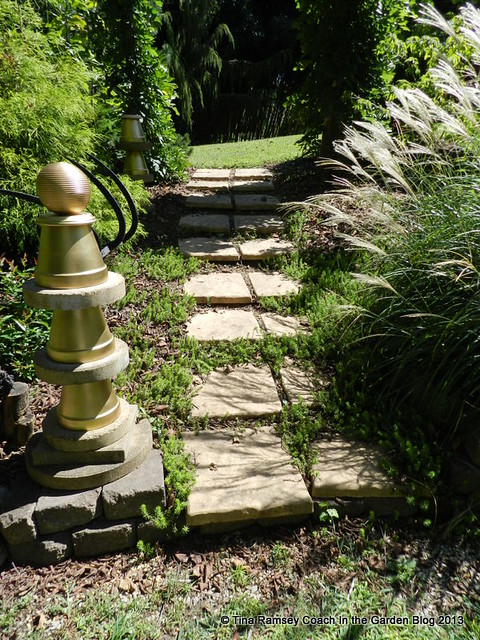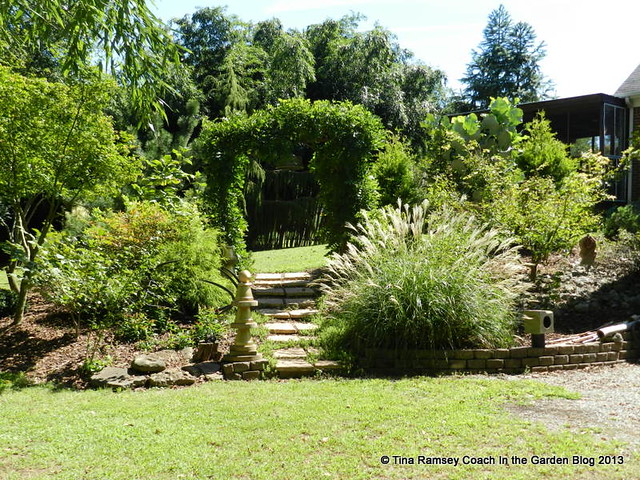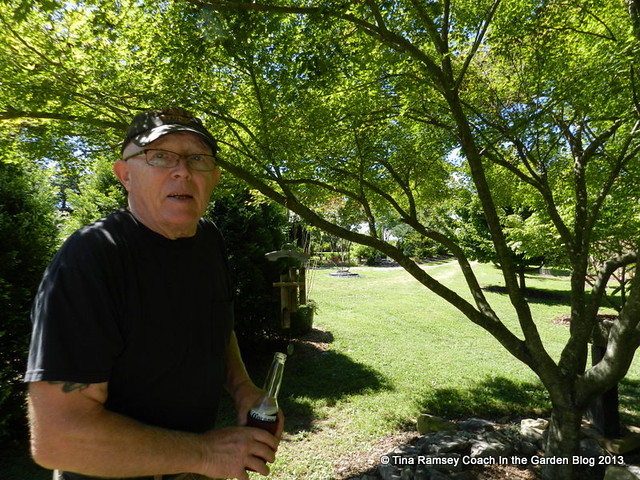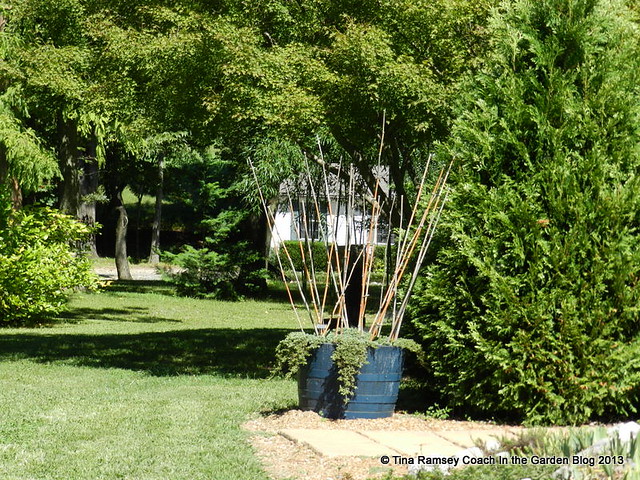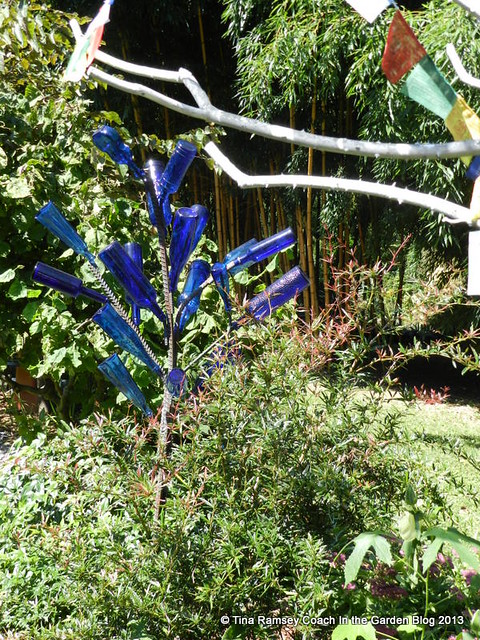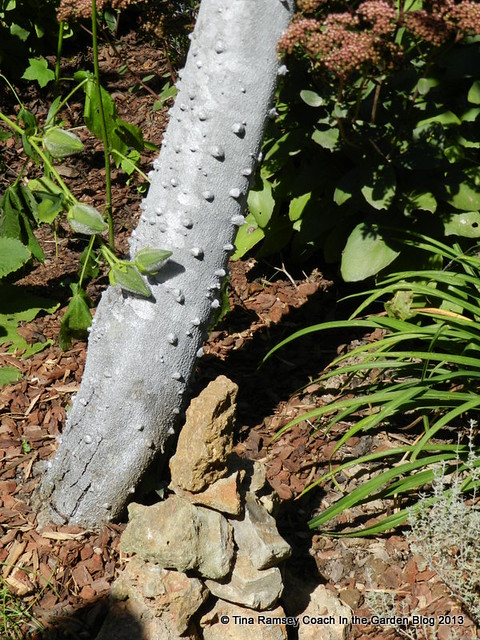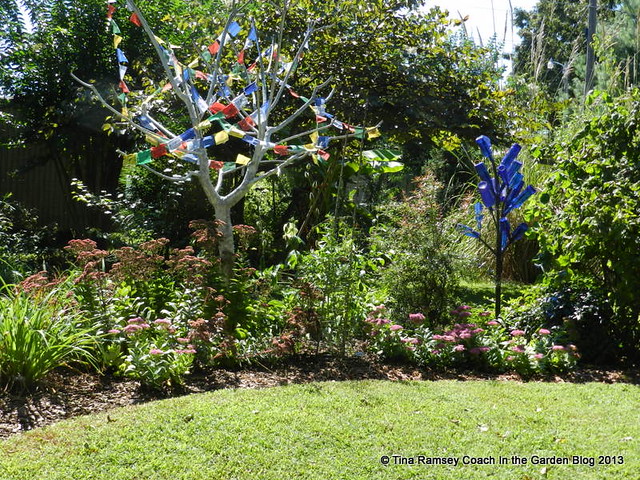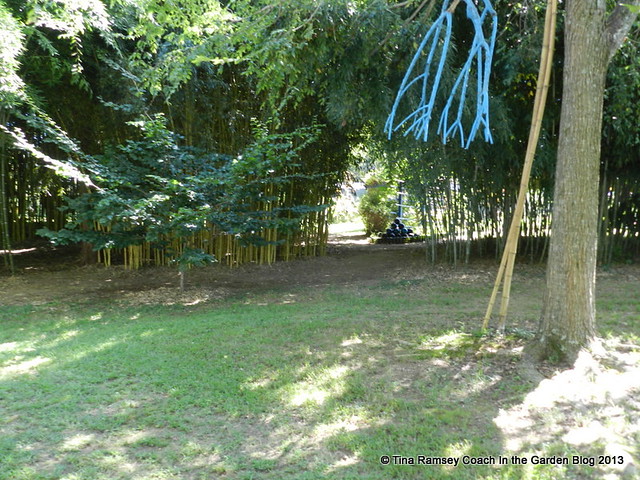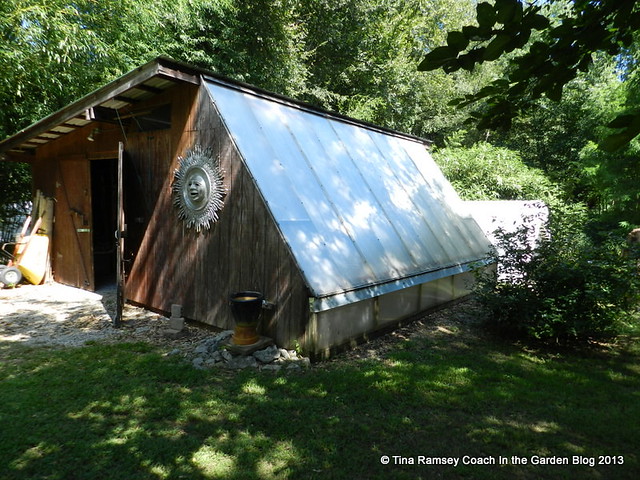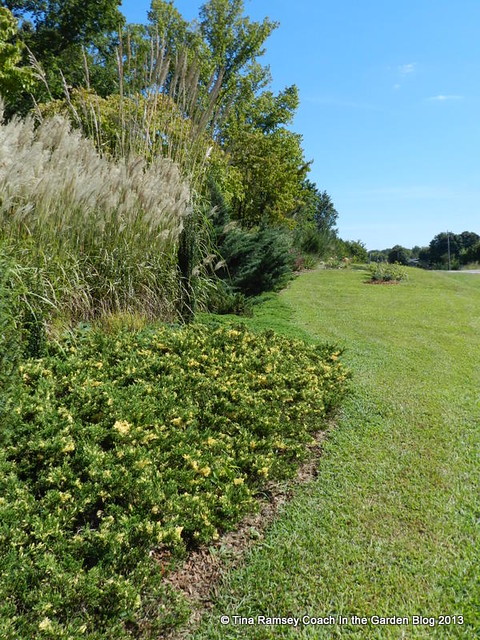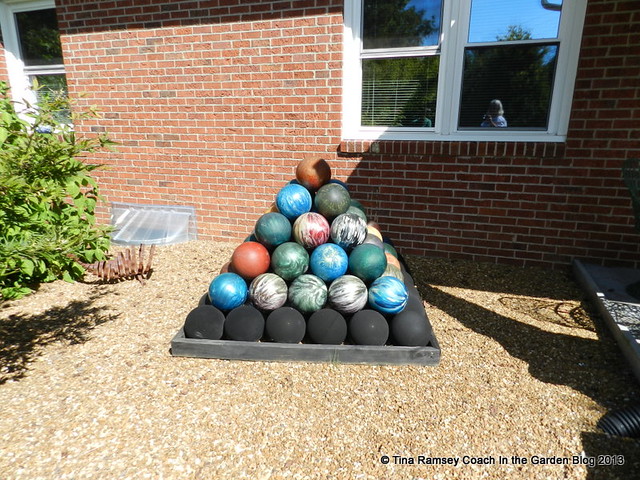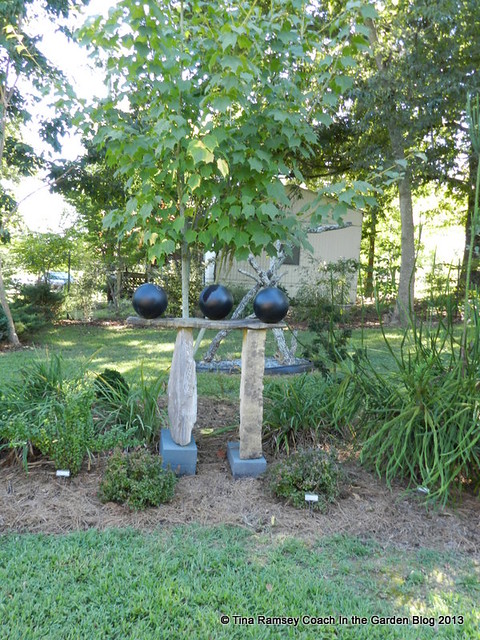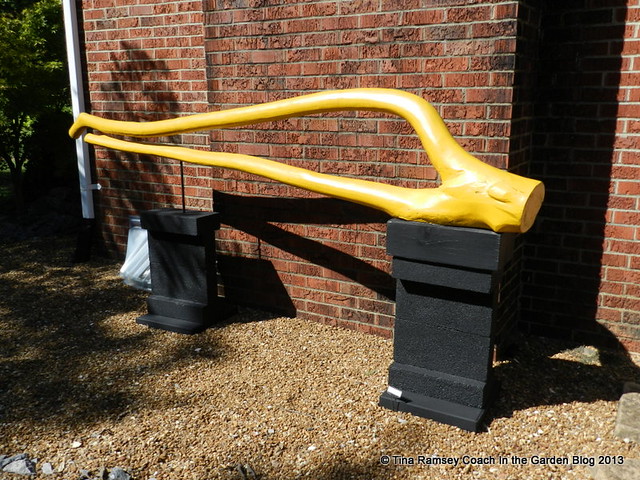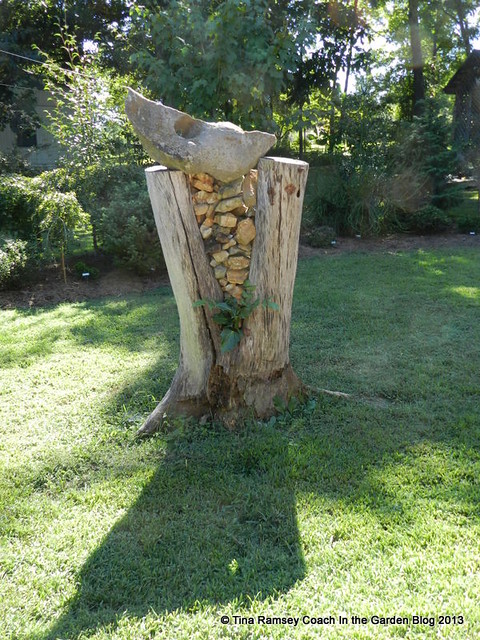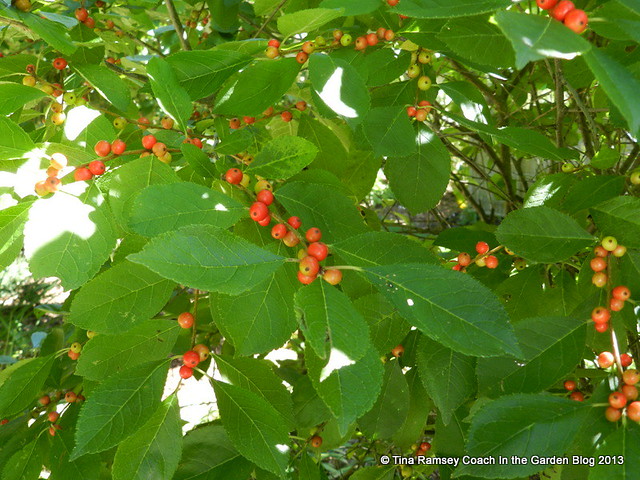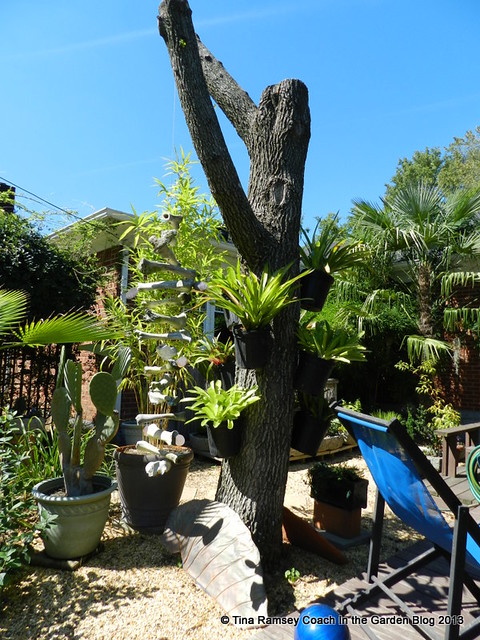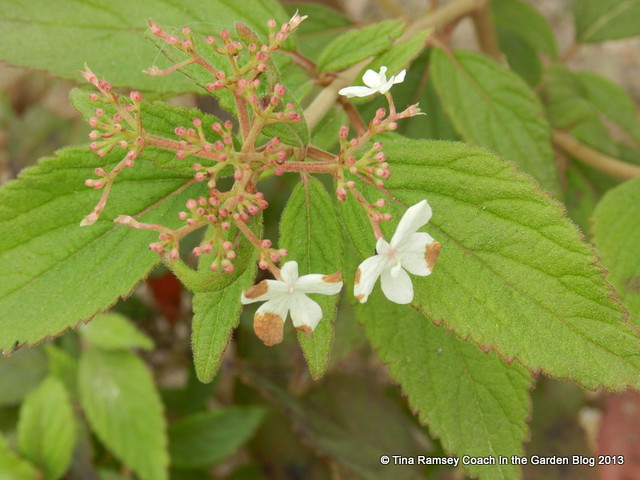
The process of moving a large garden to another location is a big and complicated process. Sometimes I just want to throw up my hands and give up but still I continue on with the garden move. The reason I do so is because while it may be easier to buy all new plants, I just can't do it. I don't want to start all over brand new because I have nurtured all of these little plants here in my garden for years and now they are big plants. I want to continue to see them grow and mature--in my new garden. Plus, I want to start with a large, and mature garden. Moving my existing plants, the ones that I can reasonably think will make the move, is the only logical solution for me.
Today we shall talk about the new viburnum garden. I call the new garden the 'Viburnum Collection'. It is the only area that is completely visible to the public because our main living area is about 300' feet off from a dirt road behind trees. You cannot see into the main area of the garden from the road, but some of the driveway garden area will be visible at some point. So right now the viburnum collection is the face of my new garden.
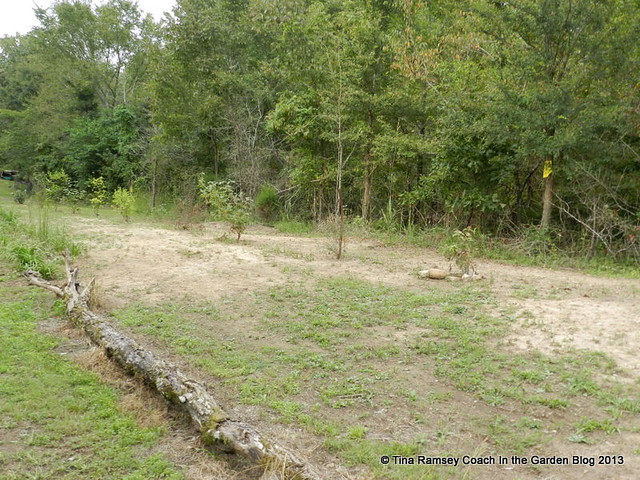
I came up with the idea several months ago while Farmer Fix-it and I were evaluating our site for clearing and building. We happen to have an area on our property that borders a road that the county has a right of way on, even though the road is technically our property. Along the road are some power lines that were, at one time, cleared beneath. When we purchased the land the area was not cleared. We had to bushog and remove a great deal of trees and weeds from this area. Once bushogging was complete we had to box blade to level the area. I don't have any pictures of the overgrown area but do have a picture showing it cleared and box bladed to level it out. This work was completed on June 16, 2013. I won't bore you with the photo because it is not much different than the one below. Just take away the shrubs and cannas and there you have it.
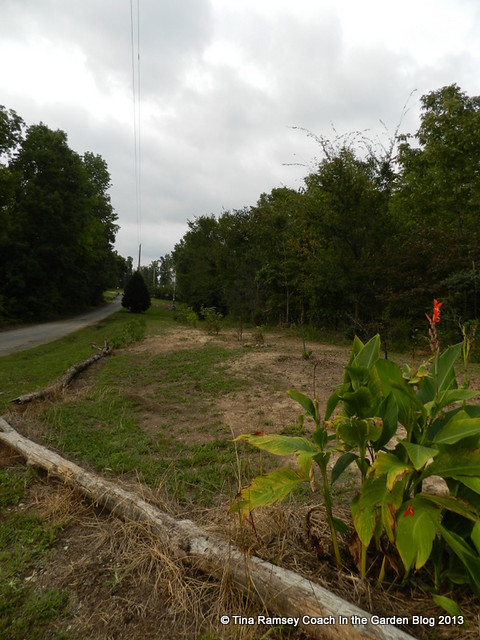
The area is about 200' long by 40' wide (from the woods to the road). The county has a right of way 20' feet from the centerline of the small road you see here. As such that took about 10' from the grassy area. This is where I started the garden. Since the area slopes slightly to the road then levels out under the power lines, I thought I'd plant some old fashioned daylilies on the edge of the hill. There are two types planted here. The shorter ditch lilies are closest to the road, while the double version 'Kwanza' daylilies are planted right behind the old fashioned daylilies. These form somewhat of a border and start the level area. They should make a grand statement next summer. There are also daffodil bulbs planted in and amongst the daylilies for added early spring color.
I decided to plant the viburnums in this area for several reasons. The most important being the space. There is more than enough space for all of my viburnums to grow here comfortably. Also, the light is perfect (full to part sun), the pH is acidic, and the soil is fairly good. The area still has tree roots, weeds, and rocks but for the most part it is perfect for the viburnums; which aren't really picky about soil. Once the viburnums are established I should not have to water them. Watering will be done by hand if needed. Another consideration is that the viburnums will never get tall enough to interfere with the power lines and I can easily maintain this area by mowing once or twice a month. At first I considered finding a spot for the viburnums in our main living area (field), but due to the varied amount of viburnums I just didn't see how I could fit all the shrubs into a partly finished landscape and make them look good. Plus, I am anxious to get as many shrubs and trees moved as soon as possible. Hence, the public area and a new viburnum collection.
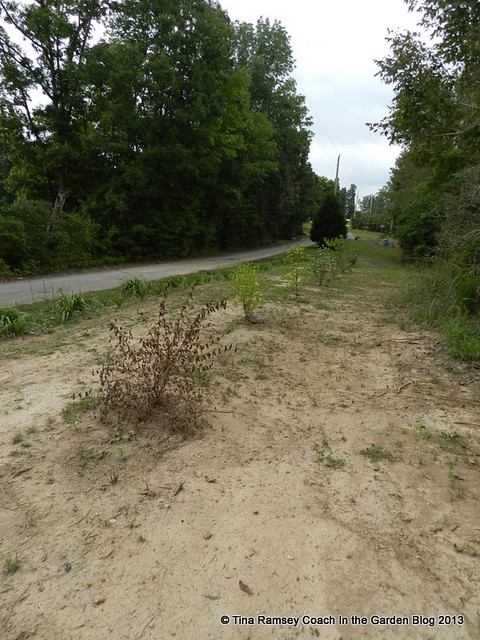
With all of the rain we've received this summer I felt fairly confident I could plant the viburnums here. I dug several viburnums at one time, always after a rain, and transported them to this location for planting. I love viburnums and find their genus to be so diverse and wonderful in so many aspects that I had begun collecting viburnums several years ago. Viburnums are easy to grow, grow quickly, bloom wonderfully, have good fall color, fragrant flowers, and sometimes they even get berries.
In order to get berries you usually need more than one cultivar of the same type of viburnum. For instance, 'Count Pulaski' is a Viburnum nudum type viburnum so I would need to have another nudum viburnum close by. In my case I have used 'Winterthur' V. nudum as a counterpart to 'Count Pulaski'. Some viburnums are self fertile but most aren't, or at least they have improved berry production when there is more than one kind planted close by. The pollination thing has really confused me so I tend to just grab a lot of viburnums and try to get at least two in the same group. That may be how I wound up with eighteen different types of viburnums. I am not sure if I will be able to take them all with me but I have a good start on moving the collection. So far fourteen cultivars have been planted in this area under the power lines.
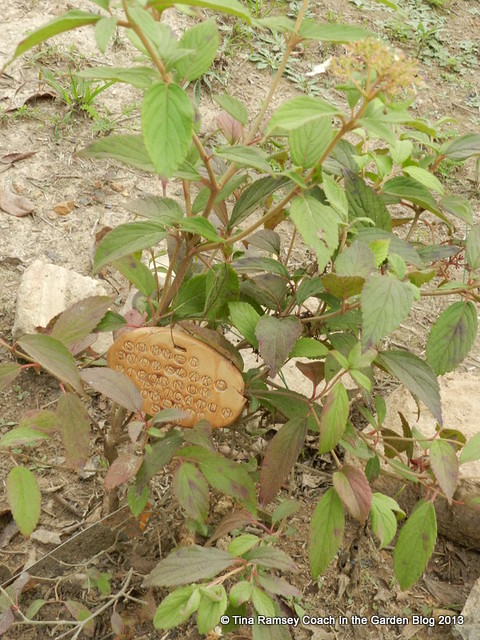
All of the viburnums are labeled with their type and cultivar with my long lasting homemade plant labels. They are arranged in a manner that I think will be pleasing to me. I also tried to space them according to my knowledge of how big they will get. Some viburnums are quite small staying around 3-4'x3-4' while others can grow as large as 12'x12'. The viburnums are spaced 10-13' feet apart on center. The kinds already planted include: 'All that Glitters' (V. bracteatum), 'All that Glows' (V. bracteatum), 'Summer Snowflake' (V. plicatum) (also blooming in the first picture), 'Reiflers Dwarf' (V. obovatum), 'Emerald Triumph' (cross between V.x rhytidophylloides 'Allegheny and V.
Still to go include: 'Doublefile Viburnum (V. plicatum var. tomentosum), Japanese Snowball bush (V.
plicatum var. tomentosum), 'Mount Airy' (V. dilatum), 'Blackhaw' (V. prunifolium). I am not sure if I am going to be able to take all of these due to the fact that some have gotten really big and I have had difficulty digging them up. Namely, the Blackhaw viburnum is being extremely stubborn and the Mt. Airy is really way too big to move. I may be able to split off a piece but I am not sure.
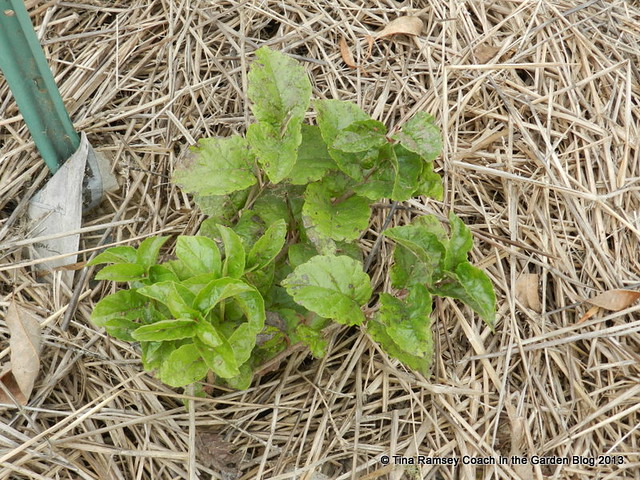
Two of the newest viburnums in the collection, though not the newest planted ones, are 'All that Glows' and 'All that Glitters' bracted viburnums (V. bracteatum). These two cultivars are pollinators for each other and were trial plants from Proven Winners this June. As soon as I received the plants and had the viburnum collection area ready, these two small viburnums were planted. They survived all summer long with little to no care from me. I must say I am quite happy with these two viburnums. The foliage is quite shiny though you can't tell it from my picture. This time of the year everything starts to look a bit weary. And, as promised by the label on the plant, these two viburnums have not been bothered by the deer. I am ever so happy about that because deer and rabbits and other varmints are a new to me garden hazard that I am having to adjust to. So far none of the viburnums have been browsed and all have adjusted well to their new home. This includes some shrubs that are over five feet tall. I have no qualms in saying viburnums are fairly easy to transplant, unlike some other shrubs I have already moved. The only viburnum that has had trouble has been the Downy Viburnum (Viburnum rafinesqueanum), but I think it will recover with time....
in the garden....
